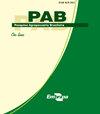Supplementation with lipid sources in diets for Jersey cows in the first third of lactation
IF 0.7
4区 农林科学
Q3 AGRICULTURE, MULTIDISCIPLINARY
引用次数: 0
Abstract
Abstract The objective of this work was to evaluate the effect of the addition of whole-crude oilseeds of linseed, sunflower, and soybean to the diet of Jersey cows, in the first third of lactation, on the following characteristics: intake, apparent nutrient digestibility, milk production and its variables, energy-corrected milk, feed efficiency, energy balance, milk fatty acid profile, and blood metabolic profile. Eight multiparous Jersey cows were used in a double Latin square design. The treatments were the experimental diets with the oilseeds, and calcium salts of fatty acids were used as the control. Protein digestibility was lower for soybean, whereas that of ether extract was higher in the control, not differing between the evaluated oilseeds. There was no difference between oilseeds for milk production, milk production corrected for fat, milk nutritional content, feed efficiency, energy balance, and blood metabolic profile. The levels of mil k monou n sat u rated fatty acids increased with the use of sunflower. Higher levels of cis-9, trans-11 conjugated linoleic acid (CLA) in milk were observed in the control. The addition of the evaluated whole-crude oilseeds to the diet of Jersey cows in the first third of lactation does not affect milk production variables, feed efficiency, energy balance, and blood biochemical profile, but alters the fatty acid profile.泌乳前三分之一泽西奶牛饲粮中添加脂质源的研究
摘要本试验旨在评价泌乳期前三分之一泽西奶牛饲粮中添加亚麻籽、葵花籽和大豆全粗油籽对采食量、营养物质表观消化率、产奶量及其变量、能量修正乳、饲料效率、能量平衡、乳脂肪酸谱和血液代谢谱的影响。8头产多产泽西奶牛采用双拉丁方设计。以油籽为试验饲料,脂肪酸钙盐为对照。大豆的蛋白质消化率较低,而对照组的脂肪提取物的蛋白质消化率较高,在评价的油籽之间没有差异。在产奶量、经脂肪校正的产奶量、乳营养成分、饲料效率、能量平衡和血液代谢谱方面,油籽之间没有差异。随着葵花的使用,牛奶中脂肪酸和脂肪酸的含量增加。在对照组中观察到牛奶中较高水平的顺式-9,反式-11共轭亚油酸(CLA)。在泌乳期前三分之一的泽西奶牛饲粮中添加所评价的全粗油籽,对泌乳指标、饲料效率、能量平衡和血液生化特征没有影响,但改变了脂肪酸特征。
本文章由计算机程序翻译,如有差异,请以英文原文为准。
求助全文
约1分钟内获得全文
求助全文
来源期刊

Pesquisa Agropecuaria Brasileira
农林科学-农业综合
CiteScore
1.20
自引率
0.00%
发文量
45
审稿时长
9-18 weeks
期刊介绍:
Pesquisa Agropecuária Brasileira – PAB – is issued monthly by Empresa Brasileira de Pesquisa Agropecuária – EMBRAPA, affiliated to Ministry of Agriculture, Livestock and Food Supply. PAB publishes original scientific-technological articles on Plant Physiology, Plant Pathology, Crop Science, Genetics, Soil Science, Food Technology and Animal Science.
Its abbreviated title is Pesq. agropec. bras., and it should be used in bibliographies, footnotes, references and bibliographic strips.
 求助内容:
求助内容: 应助结果提醒方式:
应助结果提醒方式:


